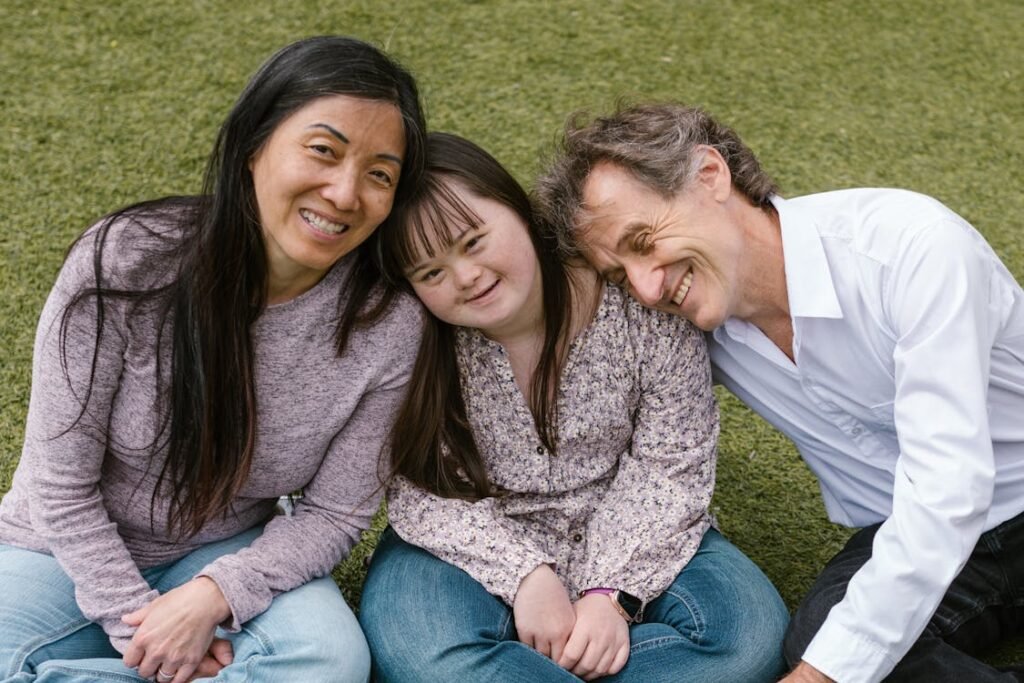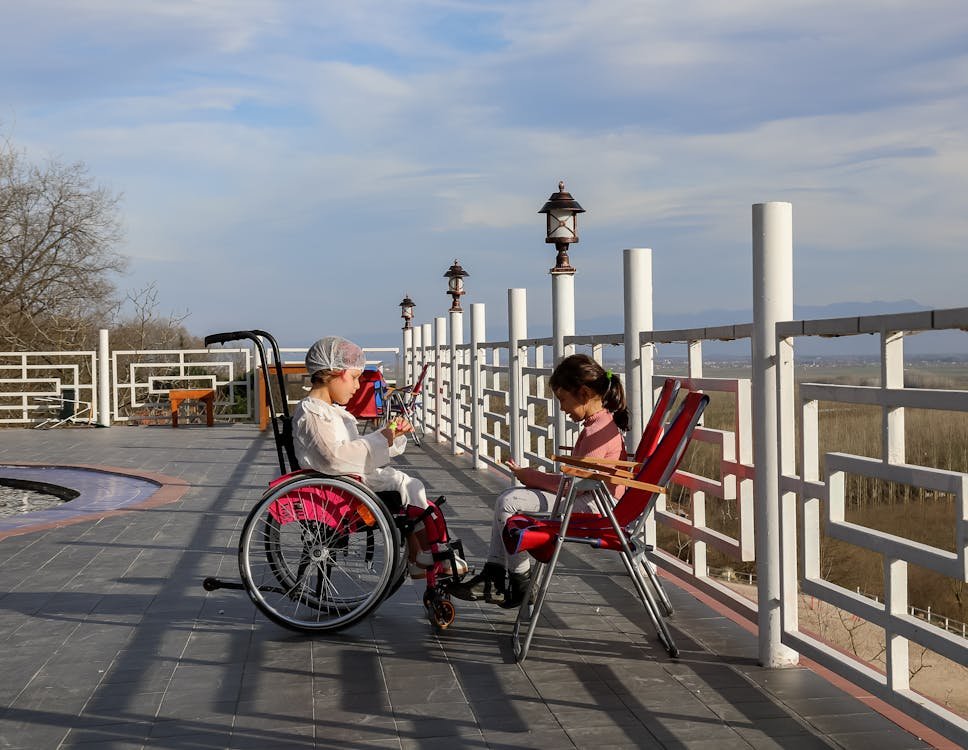Raising a child with a disability comes with many challenges, and one of the most important aspects is understanding the legal rights that protect both the child and their parents. In India, several laws ensure that children with disabilities receive equal opportunities in education, healthcare, and social inclusion. These laws also grant parents certain rights to advocate for their child’s needs, access financial assistance, and secure a better future for them.
Many parents are unaware of these rights and struggle to access essential services due to bureaucratic hurdles, lack of information, and social stigma. Knowing the legal protections available can empower parents to demand the services their child is entitled to and hold institutions accountable for providing an inclusive environment.

Legal Protections for Children with Disabilities in India
India has several laws that protect the rights of children with disabilities and provide legal support to their parents.
These laws ensure that children receive equal opportunities in education, healthcare, and social inclusion while also granting parents the authority to advocate for their needs.
The most significant legislation governing disability rights in India is the Rights of Persons with Disabilities (RPwD) Act, 2016, which replaced the older 1995 law with a more inclusive and rights-based approach.
The Rights of Persons with Disabilities (RPwD) Act, 2016
The RPwD Act, 2016, is the most comprehensive law protecting the rights of persons with disabilities, including children.
It recognizes 21 types of disabilities, including autism, cerebral palsy, intellectual disabilities, visual and hearing impairments, and multiple disabilities.
The Act ensures that children with disabilities have access to education, healthcare, and employment opportunities without discrimination.
For parents, the Act provides legal backing to demand inclusive education, accessibility in public spaces, and equal participation in society for their children.
It mandates that schools, hospitals, and other institutions provide necessary accommodations, such as special education resources, assistive devices, and barrier-free access. If these rights are denied, parents can take legal action to enforce compliance.
One of the most important provisions under this Act is the right to free education for children with disabilities aged 6 to 18 in both government and private schools.
Schools are required to provide reasonable accommodations, including special educators, assistive technology, and modified curriculums, to ensure that children with disabilities receive the same quality of education as their peers.
If a school refuses admission or fails to provide necessary support, parents can file a complaint with the local education authorities or approach the court.
The Right to Education (RTE) Act, 2009
The Right to Education (RTE) Act, 2009, guarantees free and compulsory education to all children between the ages of 6 and 14.
Under this law, children with disabilities are entitled to study in mainstream schools, with the government required to provide them with special support services.
Schools must make reasonable accommodations such as ramps, accessible classrooms, and trained teachers to ensure that children with disabilities are not excluded from learning opportunities.
The RTE Act also provides a 25% reservation in private schools for children from disadvantaged groups, including those with disabilities.
This means parents can seek admission for their child in private schools under this quota, and the government will cover the cost of education. If a school denies admission to a child with a disability, parents have the right to file a grievance with the education department.

Parental Rights in Education and Healthcare
Parents of children with disabilities play a critical role in ensuring their child’s access to education and healthcare.
The Indian legal system recognizes this and grants parents certain rights to make decisions on behalf of their child, demand necessary accommodations, and challenge any form of discrimination.
Understanding these rights helps parents navigate the education and healthcare systems more effectively.
Right to Inclusive and Special Education
Under the Rights of Persons with Disabilities (RPwD) Act, 2016, children with disabilities have the right to inclusive education. This means they should be able to study alongside their peers in mainstream schools, with necessary support systems in place.
If a child requires additional assistance, schools must provide special educators, assistive devices, and modified learning materials.
Parents have the right to demand reasonable accommodations from schools. This includes requesting individualized education plans (IEPs), which outline the specific learning needs of the child and the steps the school will take to support them.
If a school fails to provide these accommodations or refuses admission based on disability, parents can approach education authorities or file a legal complaint.
For children who require a specialized learning environment, special schools are also an option. These institutions cater specifically to children with disabilities, providing tailored curriculums, therapy services, and vocational training.
Parents have the right to choose the best educational setting for their child and seek government support if financial constraints prevent access to these schools.
Right to Healthcare and Medical Support
Access to quality healthcare is a fundamental right for children with disabilities, and parents have the legal authority to ensure their child receives the medical attention they need.
The RPwD Act, 2016, mandates that government hospitals and healthcare institutions provide free medical treatment to children with disabilities.
This includes surgeries, therapy sessions, rehabilitation programs, and access to assistive technology such as prosthetic limbs, wheelchairs, and hearing aids.
Parents can demand early intervention services, which are crucial for conditions such as autism, cerebral palsy, and intellectual disabilities.
Early diagnosis and therapy significantly improve long-term outcomes, and government healthcare programs offer free screening, therapy, and counseling services to help children develop essential life skills.
If a hospital or clinic refuses to provide these services, parents have the right to escalate the matter to health authorities.
Additionally, under the Ayushman Bharat Health Scheme, families of children with disabilities can access cashless treatment in empaneled hospitals.
This program covers a range of medical services, including surgeries, specialized treatments, and post-operative care. Parents should ensure their child is registered under this scheme to take advantage of its benefits.

Financial and Social Security Rights for Parents of Children with Disabilities
Raising a child with a disability often comes with added financial responsibilities, from medical expenses to assistive devices and specialized education.
To ease this burden, the Indian government provides financial assistance, tax benefits, and social security schemes to support parents. Understanding these rights allows families to plan better for their child’s future and access the resources they are entitled to.
Financial Assistance and Disability Pensions
The Indian government offers financial aid and disability pensions to children with disabilities and their families through various welfare schemes.
The Indira Gandhi National Disability Pension Scheme (IGNDPS) provides a monthly pension to persons with disabilities from low-income families.
Some state governments also have their own disability pension programs, offering additional financial support to parents caring for children with disabilities.
Parents can apply for these pensions through the local social welfare department by submitting their child’s disability certificate and income proof.
The amount varies by state, but it serves as a crucial financial aid to cover essential expenses such as therapy, special education, and assistive technology.
For children with severe disabilities who require lifelong support, parents can apply for the National Trust’s Niramaya Health Insurance Scheme.
This scheme provides up to ₹1 lakh per year for medical treatments, therapies, and caregiver support, ensuring that children with disabilities receive continued healthcare without financial strain.
Tax Benefits for Parents of Children with Disabilities
Parents caring for a child with a disability are eligible for tax deductions under Section 80DD of the Income Tax Act. This provision allows taxpayers to claim deductions for medical treatment, rehabilitation, and disability-related expenses incurred for their dependent child.
The deduction amount is ₹75,000 per year for disabilities between 40% and 79%, and ₹1,25,000 for severe disabilities (80% or more).
Unlike other tax deductions, Section 80DD does not require itemized expense receipts—it is a fixed deduction available to any taxpayer supporting a dependent with a disability.
However, parents must submit a valid disability certificate issued by a government-recognized medical authority to claim the benefit.
Additionally, parents can also claim deductions under Section 80D for health insurance premiums paid toward a policy that covers their child with a disability. This further reduces taxable income and provides financial relief for long-term medical care.
Reservation in Employment and Vocational Training
As children with disabilities grow older, parents have the right to seek employment and vocational training opportunities for them.
The RPwD Act mandates a 4% reservation in government jobs for persons with disabilities, ensuring they have fair access to employment.
Parents can advocate for their child’s right to education, skill development, and job placement through government-sponsored vocational training centers.
The government also provides entrepreneurship grants and self-employment loans for persons with disabilities through the National Handicapped Finance and Development Corporation (NHFDC).
Parents can explore these options to help their child develop skills, start a business, or secure employment.

Legal Guardianship and Decision-Making Rights for Parents
Parents of children with disabilities, especially those with intellectual or severe physical impairments, often need to make long-term legal and financial decisions on their behalf.
The Indian legal system provides parents with guardianship rights, allowing them to manage their child’s affairs even after they reach adulthood. These rights ensure that children with disabilities receive continuous care, financial security, and protection from exploitation.
Legal Guardianship Under the National Trust Act, 1999
The National Trust Act, 1999, provides a structured system for appointing a legal guardian for persons with disabilities who cannot make independent decisions.
This law is particularly important for parents of children with autism, cerebral palsy, intellectual disabilities, and multiple disabilities, as it allows them to retain decision-making authority beyond the child’s legal adulthood.
Under this Act, parents can apply for legal guardianship through the Local Level Committees (LLCs) set up by the National Trust.
The process involves submitting medical reports, identity proof, and an application form detailing why guardianship is necessary.
Once approved, the parent (or a designated guardian) gains legal authority to make financial, medical, and personal decisions on behalf of their child.
If parents are unable to continue as guardians due to old age or health issues, they can nominate a relative, sibling, or trusted individual to take over guardianship.
This ensures that the child continues to receive care and support even after the parents are no longer able to provide it.
Managing Property and Financial Assets for a Child with Disabilities
Parents often worry about their child’s financial security, especially when planning for the future. Indian law allows parents to set up a trust fund or use government-backed savings schemes to secure their child’s financial well-being.
One of the most beneficial options is the Sukanya Samriddhi Yojana (SSY) for female children with disabilities, which offers high interest rates and tax-free returns.
Additionally, parents can invest in disability insurance schemes like LIC Jeevan Aadhar and LIC Jeevan Vishwas, which provide long-term financial assistance to persons with disabilities.
These policies ensure that even if parents are no longer alive, their child will continue to receive financial support.
For families with significant financial assets, setting up a legal trust under the Indian Trusts Act can be an effective way to protect property and savings for the benefit of a child with a disability.
A trustee is appointed to manage these funds and ensure they are used for the child’s welfare.
Inheritance and Succession Planning
Parents can also make use of special wills and succession plans to ensure that their child with a disability is financially protected.
The Hindu Succession Act, 1956, and Indian Succession Act, 1925, allow parents to leave inheritance rights to their child with disabilities while also appointing a trusted guardian or executor to manage their estate.
This prevents financial exploitation and ensures that the child’s needs are met throughout their lifetime.

Legal Remedies for Parents Facing Discrimination or Denial of Rights
Despite strong legal protections, many parents of children with disabilities face challenges such as denial of school admission, lack of medical support, inaccessible public spaces, and discrimination in social settings.
When institutions fail to uphold disability rights, parents have the legal right to seek justice through various legal remedies.
Filing Complaints Against Schools and Educational Institutions
If a school denies admission to a child with a disability, refuses to provide special educators, or fails to make reasonable accommodations, parents can file a complaint with the State Education Department, the National Commission for Protection of Child Rights (NCPCR), or the Disability Commissioner’s Office.
Under the Right to Education (RTE) Act, 2009, no school can deny admission based on disability.
If the issue is not resolved, parents can approach the High Court through a Public Interest Litigation (PIL) to demand systemic changes, such as better school infrastructure, training for teachers, or policy improvements.
Several landmark cases in India have forced schools to become more inclusive due to parental legal action.
Seeking Action Against Hospitals and Medical Institutions
Hospitals and medical centers are required by law to provide free healthcare services, assistive devices, and rehabilitation support to children with disabilities.
If a hospital refuses treatment, delays medical procedures, or fails to provide necessary assistive technology, parents can file a complaint with the State Health Department, the Medical Council of India (MCI), or the National Human Rights Commission (NHRC).
Under the RPwD Act, 2016, hospitals that do not comply with accessibility and treatment guidelines can face legal action. Parents can also demand government intervention to improve healthcare facilities for children with disabilities in their locality.
Challenging Workplace Discrimination for Parents of Children with Disabilities
Many parents, especially mothers of children with disabilities, face workplace discrimination, including denial of flexible working hours, unpaid leave for medical care, or termination due to caregiving responsibilities.
Under the Maternity Benefit Act, 1961, and the RPwD Act, 2016, employers are required to provide flexible work arrangements, parental leave, and protection from discrimination for parents of children with disabilities.
If an employer refuses to provide these rights, parents can file a complaint with the Labour Commissioner’s Office or the State Disability Commissioner.
If discrimination persists, legal action can be taken through the Labour Court or the High Court. Many corporate workplaces are now adopting inclusive policies due to legal pressure and public awareness campaigns.
Filing a Case for Public Infrastructure Accessibility
Parents of children with disabilities often struggle with inaccessible public spaces, lack of disabled-friendly transport, and poor civic infrastructure.
The RPwD Act, 2016, mandates that all public places, including government offices, transport hubs, parks, and roads, must be accessible to persons with disabilities. If these rights are violated, parents can file a legal notice to municipal authorities or transport departments.
If no action is taken, they can approach the State Disability Commissioner or file a PIL in the High Court to demand improvements in public infrastructure.
Many Indian cities have improved wheelchair accessibility and public transport facilities due to legal petitions filed by parents and disability activists.

Empowering Parents as Advocates for Disability Rights
Legal protections exist, but real change happens when parents actively advocate for their child’s rights.
Many parents in India have successfully fought for inclusive education, better healthcare, financial assistance, and social inclusion through collective action, legal petitions, and awareness campaigns.
By becoming advocates, parents can help not only their child but also influence policy changes that benefit thousands of families facing similar challenges.
Building Awareness and Community Support
One of the most effective ways parents can push for change is by joining or forming parent advocacy groups and disability rights organizations.
Groups such as the National Centre for Promotion of Employment for Disabled People (NCPEDP) and the Disability Rights India Foundation (DRIF) work to ensure that laws protecting children with disabilities are properly implemented.
Parents can also use social media, community meetings, and public forums to highlight issues such as denial of school admissions, lack of accessible healthcare, and financial difficulties.
Media attention often forces government bodies to act faster and can even lead to policy changes. Many successful disability rights movements in India have been led by parents who refused to accept discrimination or neglect.
Engaging with Schools and Local Authorities
Instead of waiting for schools to make changes, parents can actively engage with school management committees, parent-teacher associations (PTAs), and education boards to push for better support systems for children with disabilities.
By working collaboratively, parents can encourage schools to train teachers in inclusive education, improve accessibility, and ensure that special educators are hired where needed.
Parents can also approach local government bodies, municipal corporations, and district disability welfare officers to request improvements in public infrastructure, healthcare services, and financial aid programs.
Engaging directly with decision-makers ensures that the voices of children with disabilities are heard.
Using Legal Frameworks to Demand Accountability
Parents must remember that disability rights are not favors but legal entitlements. If authorities fail to uphold these rights, parents have every legal tool available to demand accountability.
From Right to Information (RTI) applications to questioning fund allocation for disability welfare, parents can use the legal system to track progress and challenge negligence.
Many landmark court rulings in favor of disability rights have been the result of parents filing legal petitions against unjust policies.
By staying informed, collaborating with legal experts, and uniting with other parents, families can ensure that their child receives the opportunities and dignity they deserve.
Conclusion
Parents of children with disabilities in India have strong legal rights that protect their child’s education, healthcare, financial security, and overall well-being. Laws such as the Rights of Persons with Disabilities (RPwD) Act, 2016, the Right to Education (RTE) Act, 2009, and various financial aid schemes empower parents to demand equal opportunities for their children. However, awareness and proactive advocacy are crucial to ensuring that these rights are fully implemented.
By staying informed, seeking legal remedies when necessary, and actively engaging with schools, healthcare providers, and government authorities, parents can play a key role in shaping a more inclusive society. Challenges such as denial of admission, lack of medical support, and inaccessible infrastructure can be overcome when parents unite to demand accountability.
Every child with a disability deserves dignity, independence, and the opportunity to reach their full potential. When parents use the law as a tool for empowerment, they not only secure a better future for their own child but also contribute to lasting change for the disability community in India.



